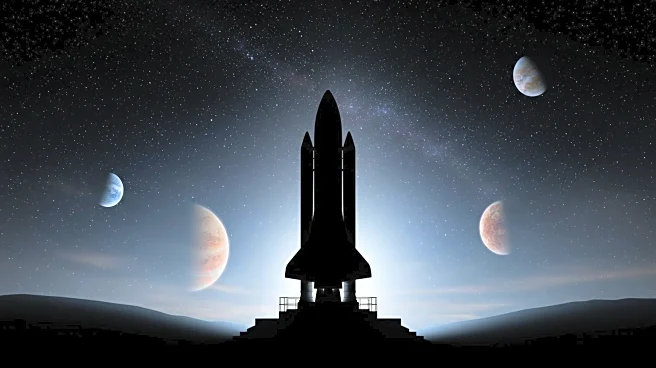What's Happening?
Arianespace's Ariane 6 rocket successfully completed its third flight, launching a European weather satellite from French Guiana. Shortly after, United Launch Alliance's Vulcan rocket lifted off from Florida on a U.S. military mission. These launches mark significant achievements for both companies, as they compete in the global space launch market. Ariane 6 reached its third flight milestone 13 months after its inaugural launch, while Vulcan took over 19 months. Meanwhile, SpaceX's Super Heavy/Starship rocket has flown nine times but has yet to reach orbit.
Why It's Important?
The successful launches of Ariane 6 and Vulcan rockets highlight the competitive landscape in the space industry, where multiple companies are vying for market share. These achievements provide Europe and the U.S. with independent access to space, reducing reliance on SpaceX. The ability to launch satellites and conduct military missions independently is crucial for national security and technological advancement. The progress of these rockets also influences the strategic decisions of governments and private companies involved in space exploration.
What's Next?
Both Arianespace and United Launch Alliance are expected to continue their launch schedules, with more missions planned in the coming months. The competition among major rocket builders will likely intensify, as each company seeks to demonstrate reliability and cost-effectiveness. Future launches will be closely watched by industry stakeholders, as they assess the capabilities and performance of these rockets.









